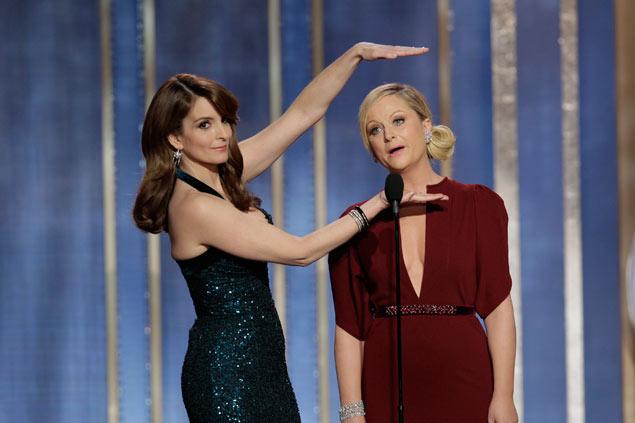How the Golden Globes became cool
To get noticed these days, you’ve got to have a host.
Share

The Golden Globe Awards are upon us this Sunday, and the most amazing thing about them is that the awards show now creates a certain amount of un-ironic excitement. This seems pretty new. The Golden Globes have always been a fun show to watch, for the stars and the clothes and especially the chance to see those stars get a little tipsy, which the fuddy-duddy Oscars won’t allow. But the show wasn’t taken seriously; it was the show where Sally Field swooped in as the Flying Nun to present an award, and where Pia Zadora got a prize for most promising newcomer. Now it’s covered with something resembling respect.
Even the awards themselves seem to be taking themselves a little more seriously. They are basically ridiculous, of course. At least the Academy Awards reflect what Hollywood insiders think of as their best work, but the Golden Globes are given by a few people we don’t know from an organization we’ve never heard of. Still, the Globes are a rather respectable affair these days. They still have the occasional nomination that’s made just to get a star’s attention, and the occasional award that feels a little off — like Andy Samberg winning an award for acting, on a show where his acting is often considered the weak link. But as The Daily Beast noted when this year’s nominations came out, most of the film and television spots go to plausible candidates now. You might still get a Quvenzhané Wallis for Annie, but never a Pia Zadora.
So what changed at the Globes to turn them from a drunken fashion show to a “real” awards show? Part of it may be just the increasingly voracious news cycle; the more news you need to find, the more in-depth coverage every big awards show gets. But I think the big turning point for the Golden Globes may have come when they switched to being a hosted show.
It’s hard to remember now, but the Golden Globes went most of their history without a host. Until Ricky Gervais was chosen in 2009, the ceremony had only been hosted a couple of times; otherwise, it just made do with individual presenters.
On a practical level, this made sense, because a host for this kind of show is, fundamentally, useless. They don’t need a host to tell us the names of the presenters, just an announcer. And after the opening monologue, there is nothing for a host to do but introduce the next presenter or make an ad lib (i.e. something the writers came up with backstage) about whatever the last winner said. There was never any need for a host to make the show entertaining.
Related: Why you should watch the Golden Globes
But what a host does is create a narrative for an awards show. In particular, it creates something for us to talk about before the show begins. Without a host, the show doesn’t really exist until it starts; with a host, we can discuss who this person is, how this host will compare to that one, and so on. Ricky Gervais was the topic of discussion before he even stepped onto the stage. And before his second year as host, you couldn’t get away from stories speculating on what he would say this time: would he come up with more outrageous, mildly critical zingers about celebrities? Would he tone himself down? He was news, and that made the Golden Globes news in a way that the awards themselves never can be.
After Gervais left, the brilliant choice of the Amy Poehler/Tina Fey tag team became even more successful in calling attention to the show, as well as a focal point of the (slightly) increased attention to women in Hollywood and comedy. No, Poehler and Fey won’t have a whole lot to do after the first few minutes, but they are what everyone thinks about before a single award has been handed out. They and the Globes have benefited each other: they made the show more popular with the viewers and the press, while their success on the show has exploded the idea that they were only popular with a niche audience. This is their last year as hosts, and they’ll be hard to replace.
Hard, but not impossible. Because it doesn’t even matter so much if the new host is as good; what matters above all is that the host should, somehow, be news, news before anything is said or done. Because I think that’s the biggest lesson of the recent rise of the Golden Globes. The host may not do a lot during the show, but in today’s culture — where we’re cynical about awards, and many of the nominees aren’t very widely seen — the host is the only thing we can all be interested in in advance.